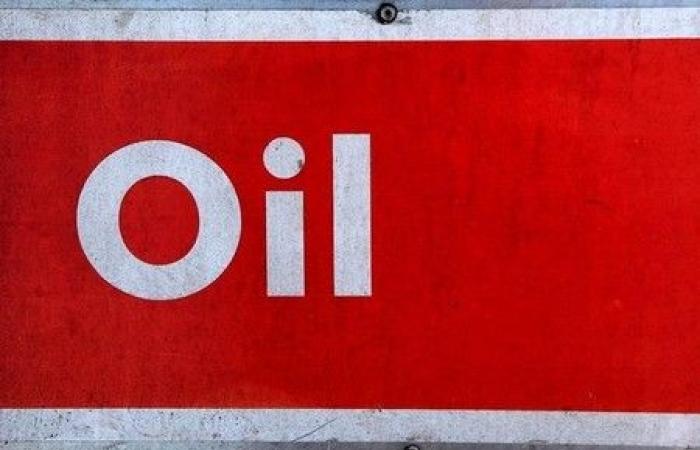Washington (awp/afp) – Oil prices fell on Monday, still weighed down by new Chinese stimulus measures considered disappointing, while natural gas jumped after the closure of platforms due to the passage of Hurricane Rafael.
On the oil side, the price of a barrel of Brent from the North Sea, for delivery in January, fell 2.76%, to close at $71.83.
That of a barrel of American West Texas Intermediate (WTI), due in January, fell by 3.32%, to $68.04.
“The market was hoping for more robust economic measures (from Beijing), but it was disappointed by what was ultimately decided,” Andy Lipow, analyst at Lipow Oil Associates, commented to AFP.
China, the world's largest importer of oil, promised Friday 10,000 billion yen (around 1,400 billion dollars) to refinance local authorities and allow them to borrow more.
The lack of measures to support consumption, however, has disappointed investors, and is weighing down black gold prices.
“The oil market has been under pressure for several weeks, as supply continues to increase (…) while demand growth in China has been rather weak,” underlined Mr. Lipow.
According to Commerzbank, Chinese crude oil imports fell 9% year-on-year in October. This is the sixth consecutive month of contraction.
Furthermore, the spectacular rise of the dollar following Donald Trump's victory “weighs on prices”, according to Mr. Lipow.
The American currency has soared by 2.16% since Wednesday, and since oil is most often exchanged in dollars, an appreciation of the greenback increases the oil bill.
The market will remain attentive this week to the publication of the monthly reports from the main forecasters, namely that of OPEC (Organization of the Petroleum Exporting Countries) on Tuesday, that of the American Energy Information Agency on Wednesday, then that of from the International Energy Agency (IEA) on Thursday.
On the gas side, the benchmark American natural gas contract jumped 9.67%, driven in particular by production problems linked to the closure of certain platforms during the passage of Hurricane Rafael in the Gulf of Mexico.
According to the Bureau of Safety and Environmental Protection (BSEE), a US agency, 13.06% of the average daily production of natural gas in the Gulf of Mexico was suspended on Monday.
The upward movement in gas can also be explained by the arrival of a cold front moving towards the northeast of the United States, while the market was expecting a mild winter.
“After momentum reached a point of bearish exhaustion last week, bullish catalysts – including collapsing production and colder weather – are triggering a long-awaited rebound…,” according to analysts at EBW.
afp/rp






